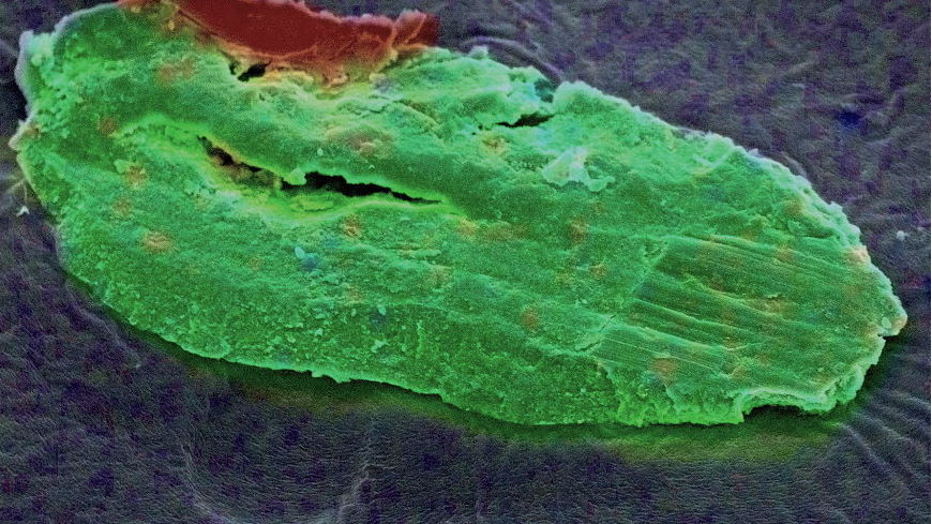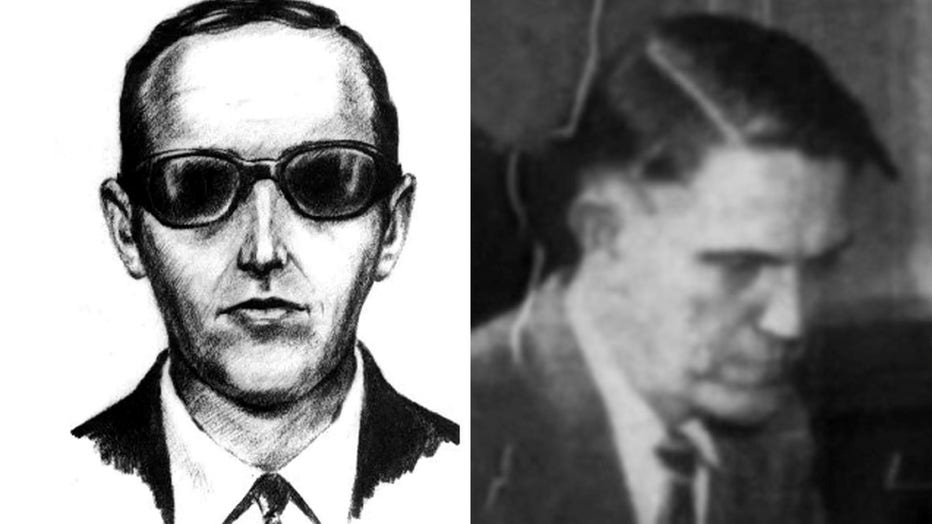New evidence discovered in D. B. Cooper skyjacking case
New evidence discovered in D. B. Cooper skyjacking case
A microscopic metal fragment found on the tie of infamous plane hijacker D.B. Cooper could help reveal his true identity.
SEATTLE - A microscopic metal fragment found on the tie of infamous plane hijacker D. B. Cooper could help reveal his true identity. Private investigator and researcher Eric Ulis is ringing in the new year with new breadcrumbs to share.
"I would not be surprised at all if 2024 was the year we figure out who this guy was," said Ulis.

This particle is part stainless steel, part titanium. Ulis believes the itsy-bitsy discovery can be traced to a sophisticated metal-fabric shop.
According to Ulis, after his legendary disappearance 52 years ago, the man known as D.B. Cooper left behind a critical clue: a clip-on tie. After the money and the man vanished without a trace, this possession was spotted on Cooper’s seat on the back row of the plane, 18-E to be exact. Ulis says the tie was purchased at a JCPenney around Christmas 1964 for $1.49.
The evidence is currently under federal lock and key, but scientists who examined it were able to pull more than 100,000 particles from it.
"He applied these sticky stubs, they’re like little carbon circles that he could apply to portions of the tie and then when you pull them off, you’re pulling off some of the particles from the tie," explained Ulis. "You apply modern state-of-the-art technology to it, things they didn’t have back 1971 when this occurred, it tells a story."
RELATED: D.B. Cooper expert says new evidence points to person of interest in unsolved case
18 months ago, Ulis used U.S. patents to trace three of these fragments from the same very tie to a specific plant in Pennsylvania, Crucible Steel.
"Headquartered in the suburbs of Pittsburgh, a significant subcontractor all throughout the 1960s," said Ulis. "It supplied the lion's share of titanium and stainless steel for Boeing's aircraft."
Ulis claims evidence points to Cooper having in-depth knowledge of the 727 he hijacked, and of the Seattle area. Workers at Crucible Steel were known to travel and visit their contractor, Boeing.
"This is also the time, 1971, when Boeing had this significant downturn, the big depression, with ‘The last person leaving Seattle, please turn out the lights‘ [billboard sign]," said Ulis. "It’s reasonable to deduce that D. B. Cooper may well have been part of that downturn."

Ulis admits his findings are not yet concrete. He’s not crossing any suspects off the list. However, he believes from what he’s seen, all roads lead to titanium research engineer Vince Peterson from Pittsburgh. Seen side-by-side with an artist’s rendering of Cooper, Peterson passed away in 2002.
"I can put him in Seattle, I can put him at Boeing," said Ulis. "He’s a compelling person of interest. He’s definitely someone I’m going to continue to dig into."

